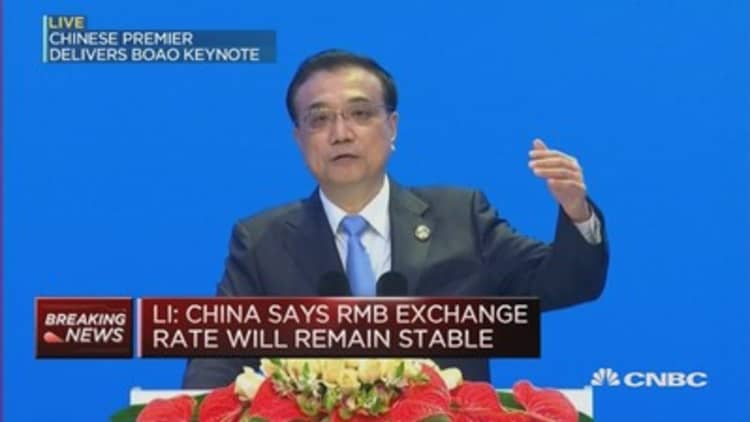

China has enough policy tools to ensure a stable economic performance, Premier Li Keqiang said on Thursday at a forum in Boao on the southern Chinese island of Hainan.
Li said that high-speed economic growth rates are not sustainable, so the government will pay more attention to the quality and efficiency of economic growth.
He said China's debt ratio is not high, pointing to a debt-GDP ratio of 17 percent.
He also reiterated that China would not devalue the yuan exchange rate to boost exports as it would not help Chinese firms become more competitive, adding that the government would continue to reduce overcapacity in steel, coal and other sectors while helping develop smaller private enterprises.
He said China will "use market tools" to create new job opportunities to offset the impact of jobs destroyed by industrial overcapacity reductions.
China's economy got off to a good and stable start in 2016, he said, encouraging observers to consider the economy "as a whole."
He added that employment was stable, although different regions and industries showed different performances, but said that the country had policies in place to strengthen growth.
He pointed out that consumption is growing at double-digit rates, and that there is more room to develop western and central regions in China.
Li also noted that China has some deep-rooted problems and is seeing unavoidable but temporary adjustment pains as its economy restructures.
He added that the government would move to ease tax and paperwork burdens on companies, but added that the country is inexperienced in implementing such reforms and there would be challenges.
Li repeated previous statements that the country hopes to cut taxes by 500 billion yuan ($76.77 billion) in 2016 and promote reforms to the value-added-tax (VAT) system.


